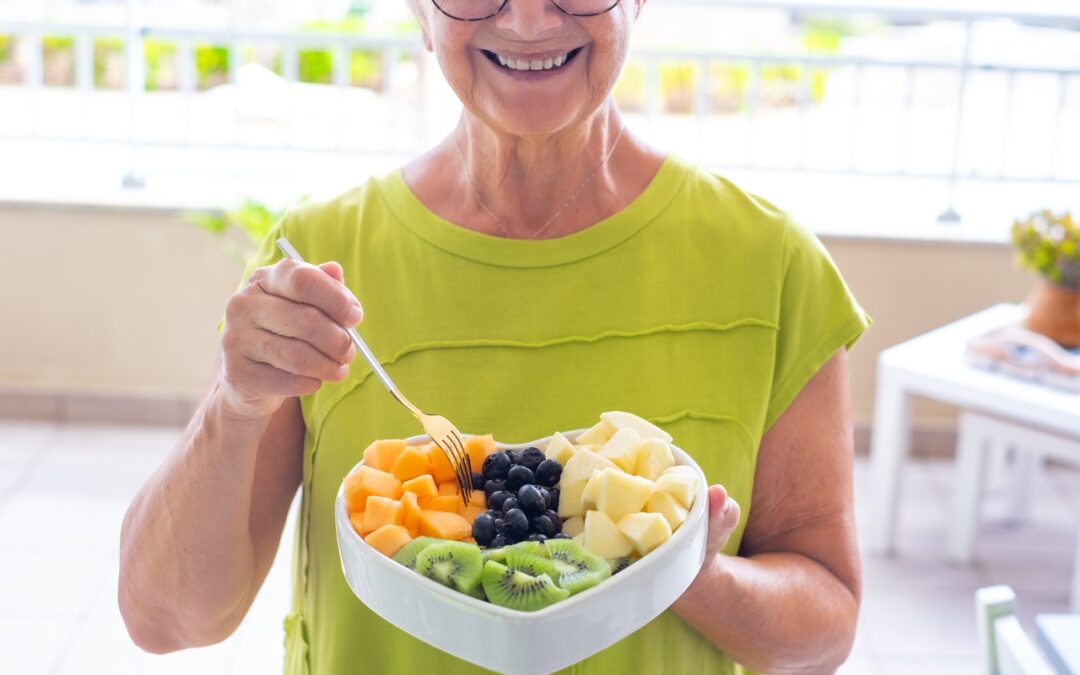As our loved ones age, maintaining a healthy and balanced diet becomes increasingly vital in promoting their overall well-being and ensuring they continue to lead fulfilling and active lives. Proper nutrition is particularly crucial for elderly individuals receiving in-home care, as they may face unique challenges in meal planning, grocery shopping, and meal preparation. By understanding the dietary needs of seniors and the role of nutrition in elder care, caregivers can support their elderly loved ones in achieving optimal health and longevity. Based in Roswell, GA, Honeybee Homecare is dedicated to providing premier in-home care services, ensuring that the dietary requirements of aging adults are effectively met.
In this article, we outline a blog content strategy focused on educating readers about the critical role of nutrition in senior in-home care. We will cover a range of topics and formats, including a comprehensive guide on the importance of nutrition for seniors, a detailed listicle of essential nutrients and their sources, a practical checklist for meal planning for in-home caregivers, and a Q&A section addressing common questions about senior nutrition and in-home care. This strategy aims to provide valuable information and support to both seniors and their caregivers in maintaining optimal health and well-being through proper nutrition.
The Importance of Nutrition in Senior In-Home Care
Aging adults have unique dietary needs and may face various challenges when preparing meals or maintaining a nutritious diet. The following factors highlight the importance of proper nutrition in senior in-home care:
- Chronic disease management: A balanced diet can help manage chronic conditions common among seniors, such as diabetes, hypertension, and heart disease.
- Enhanced immune function: Adequate nutrition supports a strong immune system, which is crucial for elderly individuals who may be more susceptible to infections.
- Improved mental acuity: Consuming a nutrient-rich diet can contribute to better cognitive function, reducing the risk of age-related cognitive decline.
- Maintenance of muscle strength and bone health: Proper nutrition ensures seniors receive essential nutrients to maintain muscle mass, bone density, and overall mobility.
- Better mood and emotional well-being: A balanced and nutrient-dense diet can positively influence mood, energy levels, and overall emotional well-being.
7 Essential Nutrients for Seniors and Their Sources
Understanding the key nutrients needed by seniors can help ensure they receive optimal nutrition as part of their in-home care. Here is a list of essential nutrients for seniors, along with their benefits and sources:
- Protein: Protein supports muscle health, immune function, and tissue repair. Sources include lean meats, poultry, fish, dairy products, nuts, and legumes.
- Fiber: Fiber aids digestion, helps maintain healthy blood sugar and cholesterol levels, and promotes satiety. Sources include whole grains, fruits, vegetables, beans, and legumes.
- Calcium: Calcium is crucial for maintaining bone health and preventing osteoporosis. Sources include dairy products, dark leafy greens, and fortified foods such as orange juice and cereals.
- Vitamin D: Vitamin D supports calcium absorption, bone health, and immune function. Sources include fatty fish, fortified milk products, and sunlight exposure.
- B Vitamins: B vitamins are essential for energy production, cognitive function, and red blood cell maintenance. Sources include whole grains, fortified cereals, lean meats, and poultry.
- Omega-3 fatty acids: Omega-3s support heart health and brain function and may reduce inflammation. Sources include fatty fish, flaxseed, chia seeds, and walnuts.
- Antioxidants: Antioxidants such as vitamins A, C, and E help protect cells from damage and support immune function. Sources include colorful fruits and vegetables, nuts, seeds, and whole grains.
Meal Planning Guidelines for In-Home Caregivers
As a caregiver, planning nutritious and appealing meals for your elderly loved one is essential to maintain their overall health. Here are some guidelines to follow when creating meal plans:
- Focus on nutrient-dense choices: Prioritize fresh fruits, vegetables, whole grains, lean protein, and healthy fats while minimizing processed foods and added sugars.
- Control portion sizes: Offer smaller, more frequent meals throughout the day to accommodate seniors’ changing appetites and metabolism.
- Incorporate dietary preferences and cultural considerations: Encourage your loved one to participate in meal planning and incorporate their favorite foods, respecting their cultural and personal preferences.
- Ensure proper hydration: Monitor fluid intake and offer water, tea, or low-sugar beverages regularly.
- Address specific dietary needs: Create meal plans that address seniors’ unique dietary requirements, such as low-sodium, diabetic, or heart-healthy options.
- Make mealtime enjoyable: Ensure a pleasant dining environment and encourage conversation during meals to promote a positive eating experience.
Common Questions about Senior Nutrition and In-Home Care
Here, we address some frequently asked questions concerning senior nutrition and in-home care:
1. How can I encourage my elderly loved one to eat when they have no appetite?
– Try offering smaller meals throughout the day, incorporating their favorite foods, or enhancing the flavor of dishes with herbs and spices.
2. What if my loved one has difficulty chewing or swallowing?
– Consult with their healthcare provider and explore options like pureed foods or softer, more easily digestible choices.
3. How can I help my loved one maintain a healthy weight?
– Monitor their diet, encourage regular physical activity, and involve them in meal planning to ensure a balanced intake of nutrients.
Conclusion
Proper nutrition is essential to ensure the well-being of seniors receiving in-home care, considering their unique dietary needs and potential challenges related to meal preparation and planning. By focusing on essential nutrients, meal planning, and addressing frequently asked questions concerning nutrition and in-home care, caregivers can help their aging loved ones maintain optimal health and enjoy a higher quality of life. By understanding and prioritizing nutrition within the scope of in-home care services, caregivers can better support their elderly loved ones on their path to a healthy and fulfilling lifestyle.
Are you seeking premier in home care in Atlanta, GA, tailored to meet the unique nutritional needs of your elderly loved one? At Honeybee Homecare, our expert caregivers are committed to providing top-quality care and support for aging adults. Schedule your free in-home consultation today!

